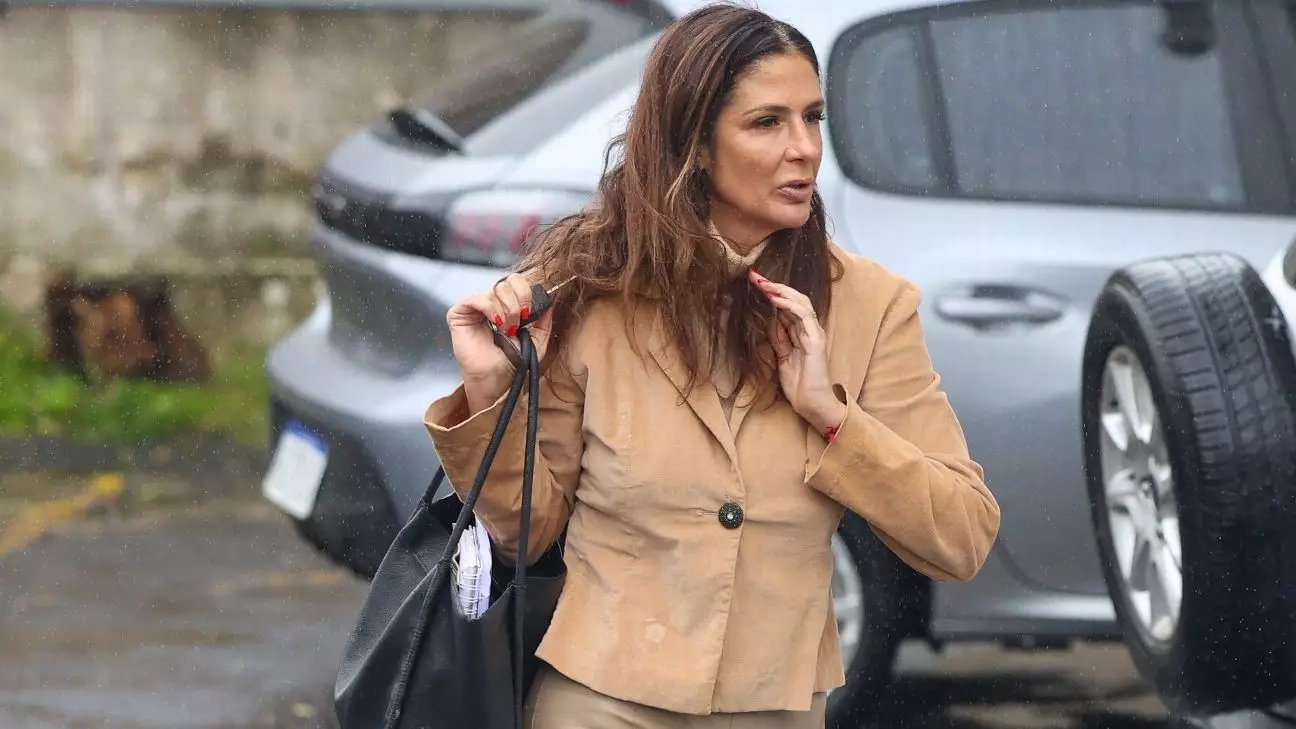The legal saga surrounding the death of Argentine soccer icon Diego Maradona has taken an unexpected and tumultuous turn with the declaration of a mistrial, leaving a nation in disbelief. In a development that has captivated the media and the public alike, an Argentine court announced a restart of the trial involving seven healthcare professionals accused of negligence resulting in Maradona’s tragic demise. The gravity of this decision goes beyond legal implications; it raises critical questions about the integrity of the judicial process itself and how sensationalism can permeate the justice system.
This mistrial comes after Judge Julieta Makintach withdrew from the case amid controversy, due to her involvement in producing a documentary titled “Divine Justice.” The film chronicles the events following Maradona’s passing and has inadvertently cast a shadow over the trial. Critics argue that her dual role as judge and participant in a media project represents a grave conflict of interest. The legal system should be a bastion of impartiality, yet this incident reveals how easily it can be tainted by external influences.
Maradona’s Legacy and the Quest for Justice
The stakes in these proceedings are undeniably high. Maradona, who led Argentina to World Cup glory in 1986, is not merely a sports figure; he is a national symbol, with his life and death deeply woven into the Argentine collective consciousness. The charges against the medical team—ranging from negligence to malpractice—are emblematic of a broader societal frustration regarding healthcare in the country. Many Argentines find themselves grappling with the notion that the very individuals entrusted with their health could fail so dramatically, especially after Maradona’s long battle with addiction and health issues.
As the trial gained momentum, it attracted an avalanche of media attention, reminding everyone of Maradona’s larger-than-life persona. His ex-partner, Veronica Ojeda, expressed heartbreak over the developments, feeling that years of pursuit for accountability had been rendered moot. “Five years of work have been thrown in the trash,” she lamented. For many, her anguish resonates more profoundly than mere legal technicalities; it underscores a sense of betrayal in a system tasked with delivering justice.
The Cultural Impact of Maradona’s Death
The trial’s emotional weight goes beyond the courtroom and into the fabric of Argentine culture. Maradona was far more than a soccer player; he symbolized resilience and grit. His passing invoked national mourning and propelled discussions around mental health, addiction, and the responsibilities of caretakers. The accusations against medical professionals have intensified these conversations, raising questions: Did Maradona receive adequate support during his darkest times? Were the doctors equipped to handle not only his physical ailments but the psychological ramifications of his fame and struggles?
As the case restarts, the role of the media cannot be overstated. The juxtaposition of footage depicting the late soccer star’s triumphs against a tragic background raises ethical concerns. Can the media truly provide an objective lens, or does sensationalism cloud the quest for truth? The prosecutor’s request to investigate the judge’s involvement in the documentary signifies a landmark moment in which the boundaries between justice and entertainment are increasingly blurred.
The Road Ahead: What Lies Beyond the Mistrial?
The future of this trial hangs in a precarious balance. With a new panel of judges to be assigned through a lottery system, the unpredictability of the legal process deepens. The families of Maradona’s children have expressed a glimmer of hope, believing that perhaps a resolution could be reached by year-end. However, the mistrial itself raises a poignant question: Can justice ever be truly served when overshadowed by such tumult?
It is vital for this trial to foster transparency and careful consideration of all involved parties, especially the diminished trust within a society that adored Maradona yet demands accountability. The journey towards justice is fraught with obstacles, but it is this journey that reflects a society grappling with its heroes, flaws, and the human condition. As Argentina watches closely, the lingering memory of Maradona remains—a tantalizing reminder of the brilliance and fragility of life, both on and off the field.

